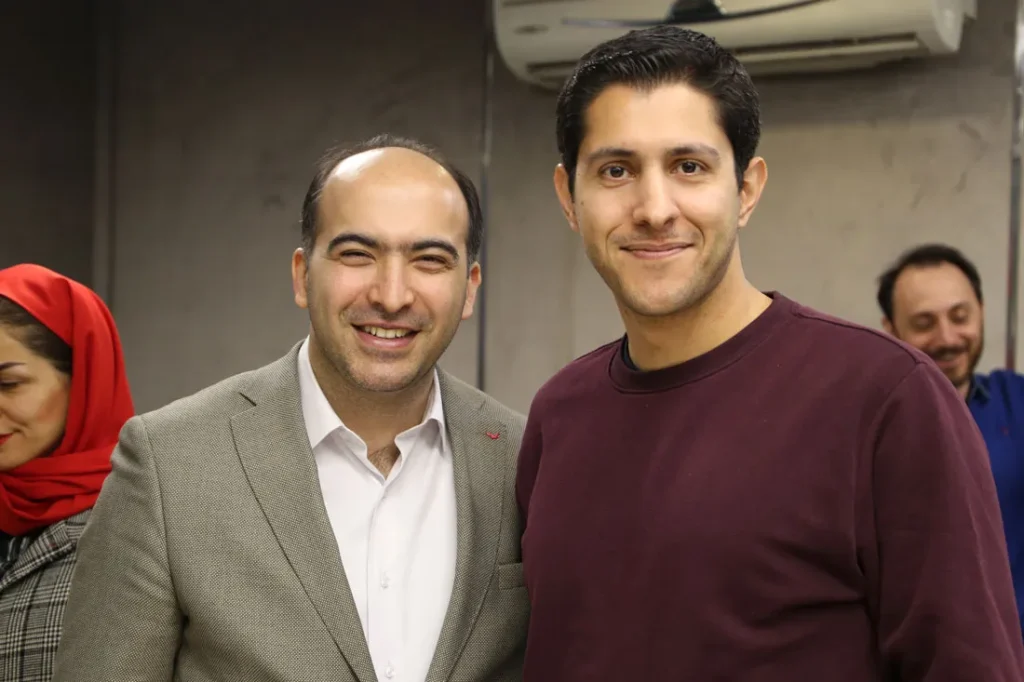O.C. TANNER
The very definition of leadership has evolved over the last few years. In the past, leaders
“climbed their way to the top” and “got people to follow them”. Today, successful leaders don’t tell their teams what to do —they connect with their teams, empower their people, and inspire greatness.
The latest research from the O.C. Tanner Institute found there are 6 essential elements of a great workplace culture: purpose, opportunity, success, appreciation, wellbeing, and leadership. We call them Talent Magnets because they are what make a great organization irresistible to the most passionate and engaged employees.
The study found that “leadership” was the most challenging magnet to get right. When employees thought about leadership, they envisioned mentorship, trust, shared responsibility, camaraderie, and advocacy. But when asked how they felt about their own leaders, more than 1 in 4 employees did not trust their direct manager and 35% of employees did not trust senior leaders at their organization. The very definition of leadership has evolved over the last few years. In the past, leaders “climbed their way to the top” and “got people to follow them”. Today, successful leaders don’t tell their teams what to do —they connect with their teams, empower their people, and inspire greatness.
The latest research from the O.C. Tanner Institute found there are 6 essential elements of a great workplace culture: purpose, opportunity, success, appreciation, wellbeing, and leadership. We call them Talent Magnets because they are what make a great organization irresistible to the most passionate and engaged employees. The study found that “leadership” was the most challenging magnet to get right. When employees thought about leadership, they envisioned mentorship, trust, shared responsibility, camaraderie, and advocacy. But when asked how they felt about their own leaders, more than 1 in 4 employees did not trust their direct manager and 35% of employees did not trust senior leaders at their organization. How to Be a Leader Your Employees Never Want to Leave.
The old saying “people don’t leave organizations; they leave leaders” was overall true. Employees wanted to stay in their organizations when they felt they were trusted, heard, seen, and inspired by their leaders.
35% of employees do not trust senior leaders at their organization.
BE INTERESTED IN YOUR PEOPLE
If you want to be a great leader, someone who truly inspires their people to greatness, you need to start by focusing on how you communicate with your employees. As a leader, it is your responsibility to keep communication continuous and open. Many leaders still believe the way to lead is to only share what they know; to be the one who talks while others listen. Effective leaders ask questions and are genuinely interested in their people’s responses. Ask for their views and opinions on upcoming projects. Listen to what they have to say during meetings and standups. And most importantly, look for valuable ideas in their insights.
Almost 1 in 3 employees say their direct manager doesn’t know people on their team as individuals and that they are all just workers to him/her.
Try these questions in your next meeting or one-on-one and discover where your people want to succeed:
• What else is possible here that we have not considered?
• If you were creating the future, what would you choose? • What if you could change a certain situation? How would it be different? How would you choose to change it?
EXPAND THEIR INFLUENCE
Another great way to make your employees feel heard and respected is by giving them opportunities to contribute outside of their job role. The contribution an employee can make to your business often extends well beyond their daily job description. Encourage your employees to contribute in ways that interest them, which often means working and collaborating across traditional job roles.
ONLY 42% of employees say their direct manager causes them to focus outside themselves and make them part of something bigger.
In an article for HR Daily Advisory, Gary Douglas, author and founder of Access Consciousness, wrote that “the true value of employees goes beyond the job they were hired to do.” Douglas continues to unpack what this means by saying, “just because someone isn’t working in a particular department, doesn’t mean they are unable to contribute to it. Your receptionist may be an excellent problem solver. Your accountant may have extraordinarily creative marketing ideas. An effective leader will recognize these assets, and draw upon them.”
USE RECOGNITION TO INSPIRE
What allows managers to achieve their full potential? What could ignite dedication, commitment, and motivation in their employees? And what is the one thing that is proven to transform “good enough” into “great”? The simple answer is: recognition.
There is no greater motivation with more lasting impact than meaningful recognition. In fact, research shows that 79% of people who end up quitting their jobs cite “lack of appreciation” as their reason for leaving. 79% of people who quit their jobs cite “lack of appreciation” as reason for leaving. 65% of North Americans report that they weren’t recognized even once last year.

